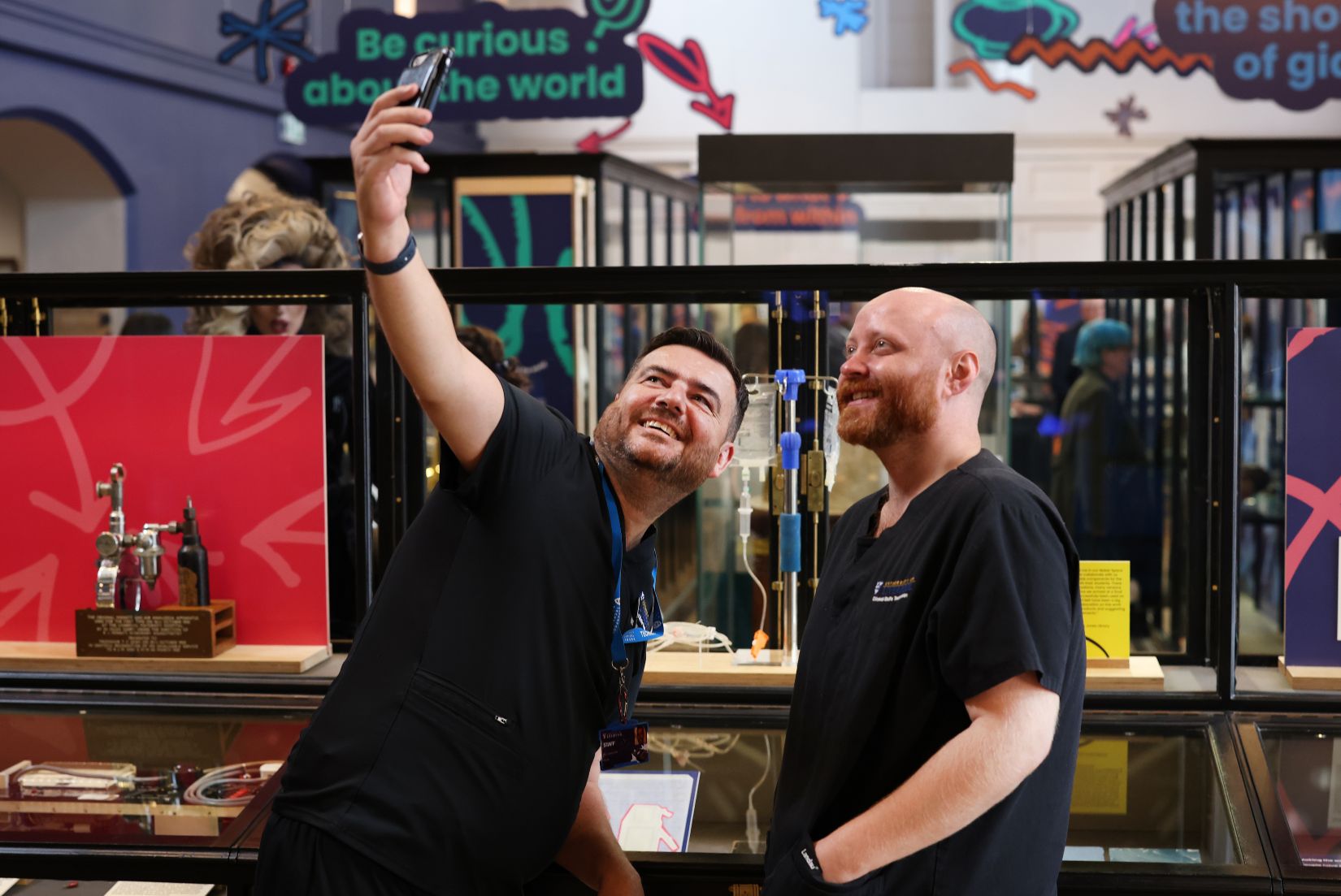
A collaborative project between the Institute of Population Health and the University’s Maker Space is helping to eliminate waste and reduce costs in clinical training, by enabling saline IV bags to be refilled and reused in training environments.
The project serves as a leading example of what can be achieved using the Maker Space’s cutting edge facilities, which include 3D design, 3D printing, laser cutting, virtual reality and podcasting.
“This project is a great example of what’s possible when expertise from across the University comes together,” said Chris McVerry. “The Maker Space empowers staff and students to develop practical, sustainable solutions that make a real difference.”
The innovation also supports the University’s wider Sustainability Strategy and reflects the University’s broader commitment to embedding sustainability across teaching, research, and operational activities, and its commitment to the UN Sustainable Development Goals.
Rethinking single use in clinical education
Each year, hundreds of saline IV bags are used by students at the Institute of Population Health for practical training. While single use items are vital in clinical settings to prevent infection, these measures aren’t required in simulated training environments.
This prompted Barry Crosbie, Clinical Simulation Technician, to explore sustainable alternatives. He brought the challenge to the Maker Space, located in the Sydney Jones Library; a hands on creative facility open to all students and staff.
Prototyping a reusable alternative
Maker Space technician Chris McVerry used rapid prototyping to develop a reusable infusion port. This innovation allows IV bags to be safely refilled with tap water for training purposes, significantly reducing plastic waste.
The final design features:
- A 3D-printed infusion port with a pierceable plastic membrane
- A laser-cut washer and bung made from natural rubber
- A screw-in cap that mimics the original sealing mechanism
Only the pierceable plastic membrane requires replacement after each use and this can be quickly and easily reprinted. The printed components can also be recycled at end of use.
Reducing cost and waste
Compared to a traditional saline bag costing around £4, the new system costs just 25p in materials to print, and only 7p thereafter to reprint the pierceable plastic membrane for each subsequent refill. This could result in hundreds of pounds in savings and a significant reduction in plastic waste.
Showcasing innovation at the VG&M
The reusable IV bag design is now on display as part of the Lightbulb Moments exhibition at the University’s Victoria Gallery & Museum. The exhibition, housed in the newly reopened Tate Hall, celebrates creativity, collaboration and the transformative power of ideas across the University. From health and engineering to the arts and social sciences, Lightbulb Moments showcases how University of Liverpool researchers, students and staff turn innovative thinking into real-world impact, with the Maker Space IV bag project exemplifying how sustainable design can make a tangible difference.
A space for making change
The Maker Space continues to provide opportunities for students and staff to explore new technologies and turn ideas into action. From free workshops and one to one appointments to 3D printing services; it’s a hub for creativity, experimentation, and sustainable thinking.
The Maker Space is open Monday to Thursday, 10am - 3pm during term time and provides a range of bookable training and consultation sessions to bring your ideas to life. Whether you're working on coursework, research, or independent projects, it’s an ideal environment to enhance your digital skills and explore sustainable design.
Find out more
Find out more and book via the Maker Space Library Guide.
Got a question? Get in touch with the Maker Space team.
The project reflects the University’s broader commitment to embedding sustainability across research, teaching, and operations. To find out more, download the Sustainability Strategy, or contact the Sustainability team at sustainability@liverpool.ac.uk